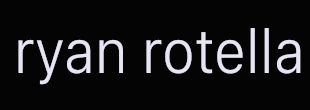Feel Trio Assignment Thing
Hello everyone:
In preparation for next class’s presentation and activities on Fred Moten’s The Feel Trio, my groupmate, Brian Parker, has come up with a splendid idea for connecting to this purposefully difficult text. We, our group, will be assigning every person one reference to a music movement or African American culture and the line it is in for people to explore then explain the reference and how it made you feel or look at the line, poem, or whole work differently. These explanations and reflections will be posted on the blog before class, so we can pull them up during our session. Also, feel free to embed videos, pictures, or what-have-you for these references to go along side your concise explanation and reflection; don’t be afraid to make it really cool. We will be assigning these lines to each person and this instructional message again sometime Saturday (so don’t worry about reading it here, classmate who is not reading this), and if you have any questions, we will provide answers and better explanations, probably.
Also, I highly recommend Brad’s post below because it is fantastic. I agree with him that “Many of his words feel like the bloc experiment that we have to drive by again and again until the words fall away and what moves us, what we are driven by, is what we carry away from what is left. The difficulty in reading it then becomes less of a task than a trade, or an artistic process itself.” Once I got past the initial frustration with the language that I could not piece together initially to make sense, I focused on how just hearing the language made me feel or think and if it that was what motivated the author to write it. For example, on page 59, when Moten writes “long set circle, we revel in what breaks us up./with nothing it’s impossible and easier, the same but really close to one another but unbridgeably far/from one another, the way we flee a broken park.” There is something distinct behind the language; it feels crafted but in a way that can only really be seen by the one who assembled it. So, I try to put myself in what Moten intends…and I don’t get much because I don’t really know who he is. I don’t know what kind of significance that park has to him.
However, I feel that when I read those lines over again, he talks about how the world (long set circle) loves conflict (what breaks us up). Even when there isn’t supposed any conflict, like how producers make something out of nothing on reality shows. On the one hand, it is impossible for there to be genuine, meaningful conflict on a reality show because those people are usually well-off and not worrying about any bills to speak of. But, somehow, it’s easy for them to have spats (even if a good bit of them are scripted but some people in general still like to start shit just to start shit). In reality, conflict should be impossible because we’re basically the same (99.9% shared DNA between us; we’re all human except Graham, who is in fact part-dawg). However, we still have powerful societal scripts at work: class, race, gender, the history of violence and war, corporatism, individualism, communism, patriarchy, etc. We as people are still far from one another like someone chasing and yelling at you through a park. It very much seems like Moten intends for the reader to fill in the gaps by connecting to the world or mood of the world evoked in his distinct language. This system creates from everyone (the speaker and audience) participating at different times like improvisation in jazz. Or I read that completely wrong.




No Comments